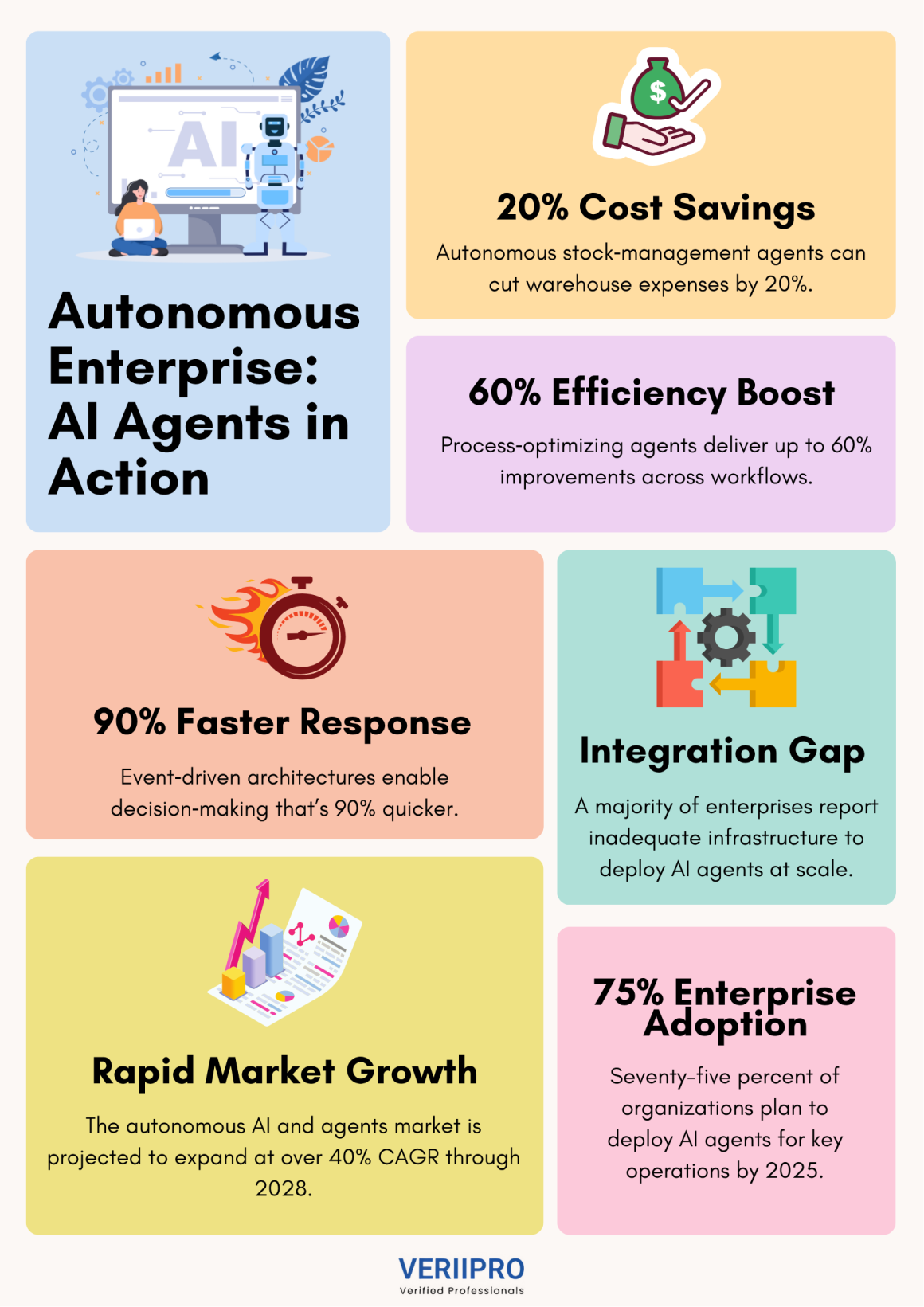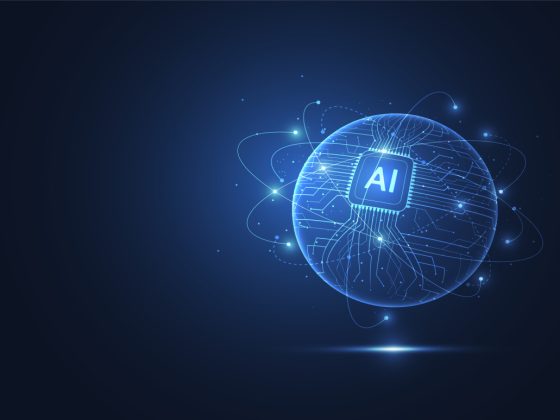The Autonomous Enterprise: AI Agents Redefining Operations
Enterprises today are racing to become fully autonomous, using AI agents to streamline workflows, reduce costs, and enhance decision‑making in real time. These intelligent software entities act on behalf of humans—automating tasks, collaborating across departments, and even optimizing entire business processes. By 2025, forward‑thinking organizations will treat AI agents as core team members, fundamentally reshaping how work gets done.

From Automation to Autonomy
Traditional automation follows predefined scripts. In contrast, autonomous AI agents learn from data, adapt to new scenarios, and make decisions with minimal human oversight. Take multi-agent collaboration: warehouses powered by Amazon Robotics systems and coordination agents can replenish stock, reorganize shelves, and conduct audits—cutting operating expenses by up to 20% and speeding up inventory management by 50%. This move from simple automation to self‑learning systems is the hallmark of the autonomous enterprise.
Optimizing Entire Workflows
AI agents are moving beyond isolated tasks to process intelligence, identifying bottlenecks and optimizing workflows across departments. In manufacturing, these agents can adjust production schedules on the fly, predict maintenance needs, and allocate resources—delivering up to 60% improvements in operational efficiency and a 25% reduction in costs. Logistics firms like UPS leverage agentic routing that analyzes traffic, capacity, and demand in real time, slashing delivery times and lowering fuel consumption.
Real‑Time Decision‑Making
The true power of AI agents lies in event-driven architectures that respond instantly to changing conditions. Financial firms deploy trading bots that execute orders based on market triggers, cutting response times by 90% and improving accuracy by 40%. Emergency response teams use agents to coordinate resources and communications during crises, ensuring timely interventions. This capability turns reactive processes into proactive, data‑driven operations.
Addressing Integration and Governance
Despite their promise, agentic systems face hurdles in integration and oversight. Surveys show most companies lack the infrastructure to fully support AI agents, and security concerns are top of mind. Successful autonomous enterprises invest in robust APIs, real‑time data pipelines, and clear governance policies—balancing innovation with compliance to ensure agents act safely and ethically.
Preparing for an Autonomous Future
Businesses that embrace autonomous AI agents will gain a significant competitive edge. To get there, leaders should:
- Build a Solid Data Foundation—Ensure clean, accessible data for continuous agent training.
- Invest in Scalable Infrastructure—Adopt cloud‑native platforms and microservices for seamless integration.
- Establish Clear Governance—Define roles, permissions, and audit trails so agents operate within safe boundaries.
- Foster a Culture of Collaboration—Encourage IT, operations, and business teams to co‑design agent workflows.
By taking these steps, organizations can transform AI agents from experimental pilots into mission‑critical assets.
Closing Thoughts
As enterprises strive for greater agility and efficiency, AI agents will become indispensable partners in everyday operations. From cross‑department coordination to end‑to‑end process optimization, these autonomous systems will redefine productivity and innovation. To align your skills with the companies leading this transformation, head to VeriiPro for exclusive job matches and direct connections to top employers. Let us help you secure your role in the autonomous enterprise.









